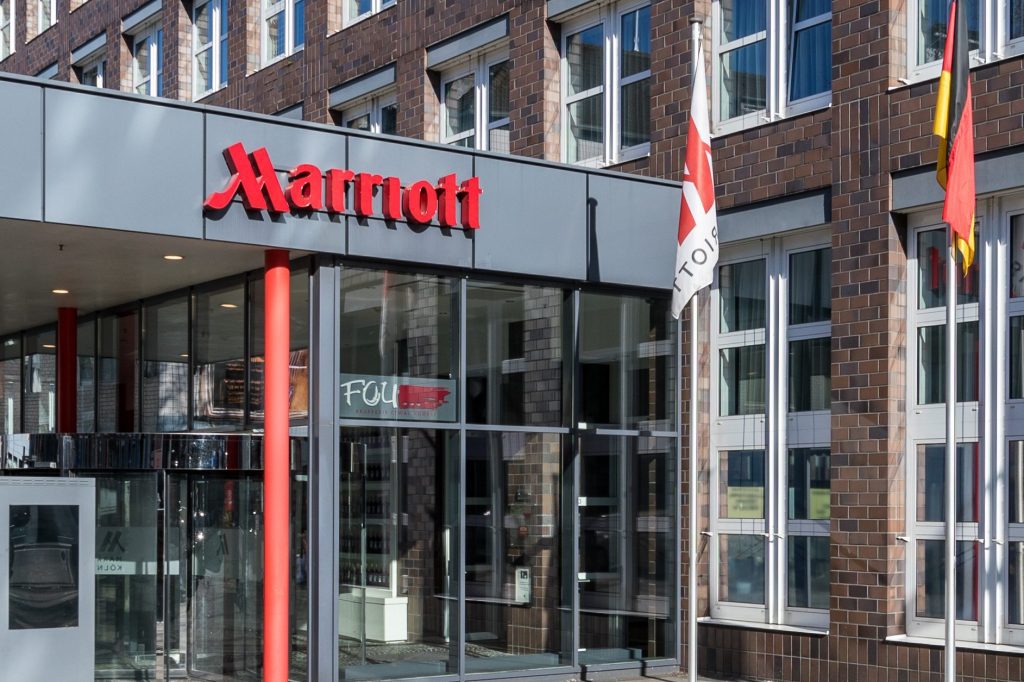Marriott Hits Profit Setback Due to Delta Variant

Skift Take
The world’s largest hotel company still has some of the best profits of any major hotel company this earnings season, but the Delta variant hindered its China recovery in the third quarter.
Marriott reported a $220 million profit for the third quarter, up from the $100 million profit seen during the same period last year but a drop from the $422 million profit seen in the second quarter of this year. That’s $20 million less than what Hilton, which has lagged Marriott for much of the pandemic, reported last week.
A leading factor behind the weaker showing stems from China’s zero-tolerance approach to relatively small outbreaks of new coronavirus cases. Analysts generally expected Marriott to face challenges this quarter due to its exposure in China.
But company leaders pointed to significant recoveries in other parts of the world and across many travel sectors as signals the company is still throttling toward a rebound.
“I firmly believe the long-term recovery is on track,” Marriott CEO Anthony Capuano said on a Wednesday call with investors and analysts. “I’m looking ahead with a lot of optimism about our future.”
Capuano noted all of Marriott’s geographic regions saw hotel performance improve in the third quarter with the exception of Greater China. This is a departure for the company that has touted the country’s strict containment measures as a strength driving it to a full recovery there quicker than any other part of the world.
U.S. and Canadian hotel performance was 20 percent off 2019 levels, a significant increase from the 40 percent decline from pre-pandemic performance seen in the same time last year. Marriott’s European portfolio saw a major jump, rallying from a 77 percent decline from 2019 levels in the third quarter last year to down 44 percent in the third quarter.
But China’s zero-tolerance approach to new coronavirus cases handicapped the late summer hotel recovery in what had been Marriott’s and the greater industry’s best-performing market heading into warmer months.
Marriott outperformed pre-pandemic levels in China this spring, and company leaders previously viewed new outbreaks there as relatively minor two-week hiccups on the recovery. But the Delta variant upended the recovery, sending most Chinese provinces into some form of lockdown over the summer and dragging out over a more pronounced period of time.
Representatives with Marriott later minimized the impact of the China setbacks on the company's recovery trajectory via email to Skift, saying fees from the greater Asia Pacific region only amounted to 7.5 percent of the total fees collected at the company in the third quarter.
Some analysts in hotel real estate circles cautioned of potential spillover effect from China’s battered commercial residential development sector into the hotel market, where major brands like Marriott, Hilton, and Wyndham are all ramping up construction.
Wyndham CEO Geoff Ballotti last week downplayed any negative impact on his own company’s construction pipeline in China, and Marriott leaders similarly showed their commitment to developing more hotels in the region.
“China is really important for us,” Capuano said. “It’s a dynamic and changing market.”
Business Recovery Setback
Marriott’s line-up of brands, which extend from more of an extended-stay offering with Residence Inn all the way up to ultra-luxury properties like St. Regis, is widely seen as a bellwether for the greater hotel industry.
But its historically greater reliance on business travel demand coming from larger companies was a third quarter obstacle. Small and medium-sized companies accounted for about 60 percent of Marriott’s business transient demand heading into the pandemic, Capuano said. The rest came from larger companies.
Roughly 80 percent of Hilton’s business transient demand came from smaller companies, the company reported last week. These kinds of businesses generally worked through the pandemic while larger corporations pushed off the return to the office and business travel into later this year or even into 2022. That likely gave Hilton a leg up on Marriott for the third quarter.
“We’ve continued our work from before Covid to further increase our focus on this segment of demand,” Hilton CEO Christopher Nassetta said last week of small and medium-sized companies. “This demand is higher rated and more resilient, which has helped us recovery more quickly in business transient and should drive rate compression in the future as larger corporate travel picks up.”
A Rapid Rate Rebound
There was still a swift recovery benchmark for Marriott leaders to tout Wednesday. Most hotel companies pushed to hold rates through the pandemic, believing discounts wouldn’t draw more customers and that it’d be harder to get back to pre-pandemic pricing.
That strategy is proving to be a smart one for the industry relative to prior downturns.
Marriott's rate recovery lagged its room revenue recovery by five years after the 2009 financial collapse and four years after the Sept. 11 attacks. Room rates are essentially already back to 2019 levels in the U.S. and Canada, Leeny Oberg — Marriott's chief financial officer — said.
“We've been very pleased to see rate almost back at pre-pandemic levels in just 20 months,” she said.
[UPDATE]: Following publication, Marriott representatives reached out in response to this story. Comments regarding fees generated for the company from the Asia Pacific region have been added.




